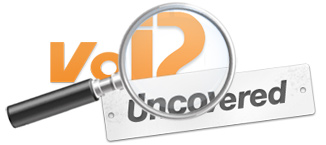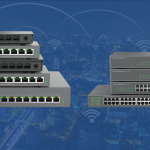New Series Provides Greater Voice Transcoding Deployment Capability and Flexibility in VoIP Solutions Market
Sangoma(R) Technologies Corporation (TSX VENTURE:STC), a leading provider of hardware and software components that enable or enhance IP Communications Systems for both voice and data, today launched the D150 voice transcoding series, the latest addition to its transcoding board offering, targeted for the embedded and stand-alone VoIP solutions markets.
In a constant battle to maximize capital investment and improve ROI, network operators need to push as much voice traffic through their existing infrastructure as possible. Operators may choose to encode (or compress) the voice signals with any one of a variety of VoIP codecs, such as G.723 or G.729. Moreover, if a call needs to traverse two different networks that each support different codecs, the voice signal must be transcoded in real time. The processes of encoding and transcoding are processor intense and can often cause load related issues with the server that is managing the process. The D150 boards are specifically engineered to perform the required transcoding without impacting the host performance, allowing the system to support a significantly increased number of calls.
The D150 series supports a wide range of industry standard codecs and is offered in 3 form factors for greater deployment possibilities and flexibility.
- The D150-ETH board provides the ability to add transcoding capabilities for compact form factors where no PCI interfaces are available or for when the CPU does not have enough power to handle extra loads
- The D150-BOX appliance provides the ability to easily set-up stand-alone transcoding media servers within a very small footprint
- The D150-PMC board allows the addition of voice transcoding to be embedded in custom hardware designs using the PMC IEEE 1386 standard
“The D150 series along with our existing D100 and D500 offering provides increased deployment flexibility for developers and integrators,” said Frederic Dickey, director of product management at Sangoma. “Whether your telecom solution integrations call for standard servers with PCI interfaces or custom development, Sangoma offers a form factor to help you. Moreover, integration development investment is protected because the software that enables all D-series products is exactly the same.”
The D150 board makes it possible to convert numerous simultaneous channels of voice communication from one type of codec (e.g. G.711) to another (e.g. G.729), without affecting latency or using up precious host CPU resources. Each D150 product can also run up to 400 channels of any-to-any voice codec conversion with unmatched quality.
The D150 software drivers also provide “plug-and-play” capabilities for both Asterisk and FreeSWITCH – two leading open source telephony projects. With the compatible drivers, the open source telephony platforms can use the D150 boards as seamless voice transcoding resources. This, company officials have said, means that existing Asterisk and FreeSWITCH applications can readily start leveraging the D150 capabilities. Further, the open source telephony software can be used as a gateway or session border controller to provide network-based transcoding services.
The TSX Venture Exchange does not accept responsibility for the adequacy or accuracy of this release.





